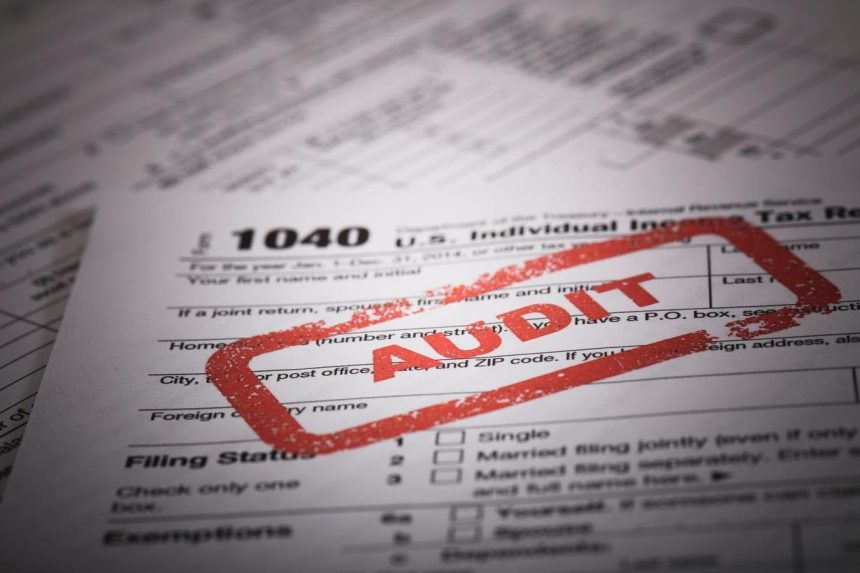The June 20, 2024 report by the Treasury Inspector General for Tax Administration came as a shock to many. The TIGTA report explained that to meet an audit quota set in 2020, the IRS started examining tax returns that fit a designated profile of “high income” taxpayers, even if these returns did not show typical signs of irregularities. High-income taxpayers were defined as those with a total positive income of $10 million or more. As a result of trying to reach the quota directive, TIGTA reports that the drop in efficiency at the IRS was so steep that the agency has now ceased compliance with this directive and changed its course.
This audit tactic was put in place in March 2020 pursuant to former Secretary of the Treasury Steven Mnuchin’s Treasury Directive that the IRS annually audit a minimum of 8 percent of all high-income individual returns. The IRS initiative to increase audits of high-income individuals did not yield the expected results, uncovering significantly less noncompliance than anticipated. Despite targeting high-income individuals, the audits did not reveal the level of tax evasion or underreporting that was expected and the IRS does not know why.
The outcome described in the TIGTA report raises many questions. Questions include inquiring about the effectiveness of IRS strategies, the complexities of the U.S. tax code and the capabilities of the agency itself. Perhaps most importantly, one must question the biases held about wealthy taxpayers.
The Objective: Targeting the Wealthy
The rationale behind Mnuchin’s 2020 Treasury Directive for increased audits was clear: high-net-worth individuals were believed to contribute disproportionately to the tax gap—the difference between taxes owed and taxes paid. By focusing on this demographic, the IRS aimed to recover substantial unpaid taxes and deter aggressive tax avoidance. However, the results have been so underwhelming, that the IRS has abandoned this methodology.
According to TIGTA, IRS case selection criteria in place prior to Mnuchin’s 2020 Treasury Directive resulted in better productivity metrics when compared to the post- 2020 Treasury Directive results. The IRS has now ceased compliance with the $10 million 2020 Treasury Directive. In order to avoid fruitless searches, its new focus will be to expand examinations of individuals with incomes of $400,000 or more, but without specific criteria.
Historical Parallels with Overseas Taxpayers
This situation bears a resemblance to the IRS previous crackdown on taxpayers with foreign financial accounts. The IRS Offshore Voluntary Disclosure Program, and later the Offshore Voluntary Disclosure Initiative were put in place to bring taxpayers back into compliance. These initiatives (which are now closed) appeared to assume that foreign accounts were tax avoidance schemes and taxpayers were essentially presumed guilty for having them.
The launch of massive IRS investigations of offshore account holders resulted in panic among benign actors. Many were taxpayers living and working overseas needing financial accounts in the country where they lived and worked, or where they owned properties.
Large numbers of innocent taxpayers joined the IRS offshore programs, facing massive penalties for innocuous foreign accounts that the taxpayers had simply failed to properly report. These included bank accounts set up to receive salaries and make payments while living abroad, as well as foreign pension plans and life insurance policies with cash surrender values. For the typical American living overseas, these financial arrangements were normal parts of their everyday lives, but they did not understand the associated tax and reporting duties. Many had been given inadequate or incorrect U.S. tax advice by tax advisors who lacked the necessary international expertise leaving the taxpayer exposed to huge penalties.
For a large number of taxpayers, the IRS programs to regain tax compliance involved structured penalties that were wildly out of proportion to the transgressions at issue. Those who attempted to “opt-out” of the programs were faced with IRS audits and the spectre of even larger penalties. Some years later, the IRS realized that many taxpayers with offshore accounts and assets were not evading taxes but were simply unaware of their tax reporting duties and were not finding adequate international tax help to guide them. IRS then implemented minimal penalty, or penalty-free “Streamlined” programs for taxpayers to regain compliance.
Conclusion
Undoubtedly, various obstacles pose significant challenges to the integrity of the U.S. tax system, including sophisticated tax planning that only very specialized audits with international cooperation can likely unravel. IRS resource constraints, and a highly complex tax code that invites searching for, and finding, legitimate loopholes are also troublesome.
Despite the obstacles in detecting tax cheats, the TIGTA report provides a valuable lesson: the most effective audit guidelines are not based on those with high incomes and larger tax bills. Rather, the most efficient audits will target those with indicators of noncompliance. High-income individuals, especially those with offshore holdings, may be politically appealing targets, but auditing them based solely on income levels or foreign investments is a wasteful error.
I help with tax matters around the globe.
Reach me at [email protected]
Send a note about an area of tax you’d like to see me write about.
Read the full article here
















